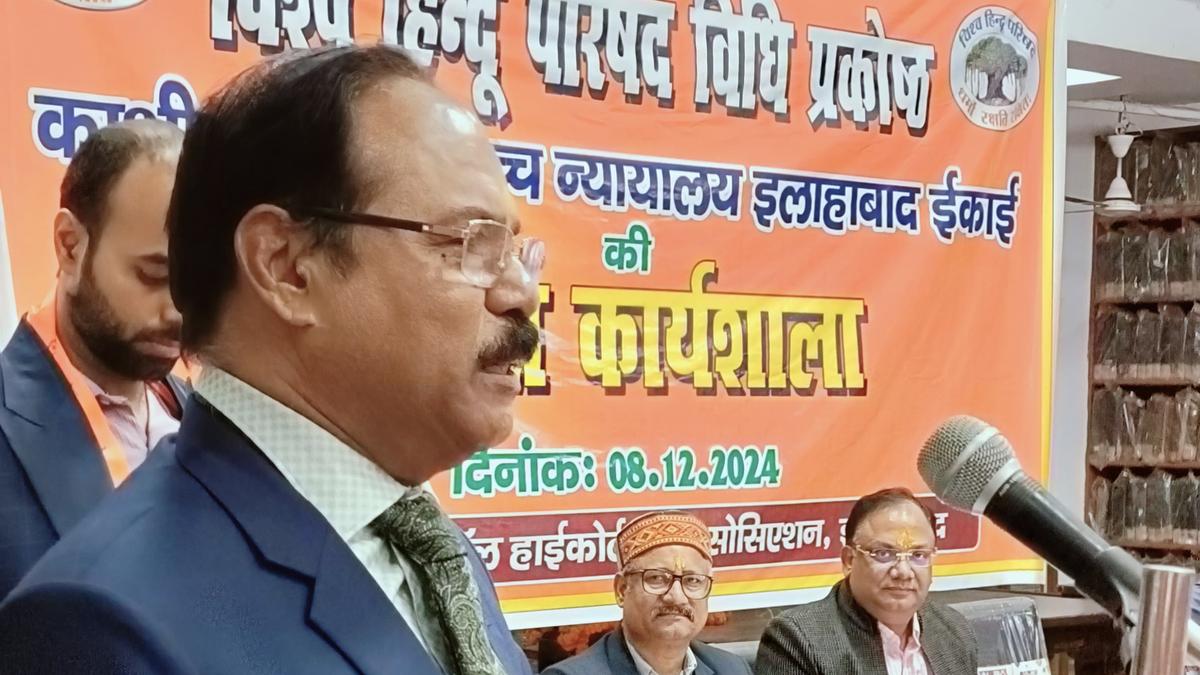 |
|
The recent controversy surrounding Justice Shekhar Kumar Yadav, a judge of the Allahabad High Court, highlights the delicate balance between judicial impartiality and freedom of expression. His speech at a Vishwa Hindu Parishad (VHP) function, where he reportedly discussed the Uniform Civil Code (UCC) and other potentially contentious issues, has drawn significant criticism and prompted an investigation by the Supreme Court. This incident underscores the importance of maintaining public trust in the judiciary and the need for judges to carefully consider the potential impact of their public statements. The fact that the speech was delivered at a VHP event, an organization with a known political leaning, further complicates the situation and raises concerns about the perception of bias. The subsequent call for an in-house inquiry reflects the seriousness with which the judiciary views such matters, demonstrating a commitment to upholding its integrity.
The Supreme Court's response demonstrates the institution's commitment to addressing concerns about judicial conduct. By seeking a report from the Allahabad High Court and indicating that Justice Yadav will likely appear before the Collegium, the court is following established procedures for dealing with controversies involving sitting judges. This process allows the judge to present his perspective and for the Collegium to assess the situation thoroughly. The established procedure offers a mechanism for accountability, allowing for a fair and transparent investigation that respects the judge's right to due process while upholding the standards expected of those in judicial positions. The seriousness of the Supreme Court's action, however, also speaks to the gravity of the allegations against Justice Yadav and the potential damage his remarks could inflict on the judiciary's reputation.
The reactions from various quarters, including opposition leaders, lawyers like Prashant Bhushan, and organizations such as the Bar Association of India, underscore the wide-ranging impact of Justice Yadav's statements. The accusations of hate speech and breaches of judicial ethics raise important questions about the boundaries of free speech for judges and the potential consequences of statements perceived as biased or partisan. The diverse range of critics, from political opponents to legal professionals, reveals the broad concern that the judge's actions have created. The demand for an inquiry and the calls for the judge to retract his statements or apologize demonstrate the public's expectation of accountability and the importance of maintaining public confidence in the integrity of the judiciary. The incident serves as a reminder of the crucial role judges play in maintaining the fairness and impartiality of the legal system and the potential harm caused when that impartiality is questioned.
The controversy surrounding Justice Yadav’s speech also raises broader questions about the role of judges in public life. While judges are not expected to be entirely apolitical, the line between permissible public engagement and potentially compromising actions can be difficult to navigate. The challenge lies in balancing the freedom of expression with the need for judges to maintain a perception of neutrality and impartiality. This case highlights the need for greater clarity and perhaps revised guidelines for judges regarding public appearances and statements, particularly in relation to politically charged events or organizations. The incident also reinforces the need for continuous discussion and education concerning judicial ethics and appropriate conduct. The ongoing debate spurred by this controversy is likely to stimulate further discussions on the topic and contribute to a greater understanding of the responsibilities and expectations associated with holding a position of judicial authority.
The Supreme Court’s response, though appropriate according to established processes, also highlights the limitations of internal mechanisms for addressing such concerns. While the Collegium inquiry offers a formal process for addressing allegations, it could be argued that an independent body, external to the judiciary itself, may offer greater impartiality and public confidence. The potential for perceived bias within the system prompts reflection on whether existing mechanisms are sufficient to address all potential conflicts of interest or breaches of ethics. This is a complex issue, requiring careful consideration of the independence of the judiciary, its internal mechanisms for self-regulation, and the need to maintain public trust and confidence. Balancing these conflicting demands requires ongoing review and potentially the consideration of alternative approaches.
Source: Justice Yadav likely to appear before Supreme Court Collegium over comments at VHP event
